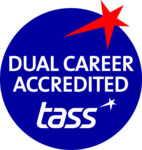Thursday 12 October 2023
Moulton College is calling on local businesses to become active members of its new Industry Skills Boards (ISBs), which have been launched to ensure its students leave ready to join the region’s employers with the appropriate skillset.
By participating in one of the College’s four ISBs, local employers can have a direct say on what skills they are looking for in their respective sectors, while helping to shape the future curriculum of the FE college’s provision in areas including construction, agriculture, animal management, and sport.
Matt Smith, Executive Director of Skills & Business Development at Moulton College, explains: “As a key stakeholder in the future success of Northamptonshire and beyond, we want to ensure our students leave here with the skills and attitudes needed to help them and their future employees succeed, whatever the industry or job role.
“To do that, we want local employers from a range of sectors to join our ISBs and help us shape our curriculum so that it better suits their needs going forward.”
ISBs will be held three times a year and will be chaired by a local employer, with business representatives joined by Moulton’s curriculum staff, as well as trade associations, qualification bodies and other stakeholders. By giving employers a say, Moulton College hopes to develop students equipped and ready to make a positive impact on the local economy and community.
Matt adds: “We have ISBs covering our four main curriculum areas of sport, animal management and welfare, and land-based courses such as agriculture and horticulture. We will also have one covering our construction courses, which includes electrical services, plumbing and bricklaying. We’d welcome employers with interests in those areas to come and join us and share the kinds of skills they’d like to see future employees come armed with.”
Those involved will be encouraged to help shape the curriculum provision further by providing speakers and sharing the latest techniques in use in their respective industries so students can hear first-hand how businesses operate and their expectations.
Matt concludes: “It is a co-design, co-delivery approach with employers having direct input on what we teach students. In addition to improving their skillsets we’re also looking at developing behaviours too, from communication skills to resilience, all of which play a key role in the workplace.”










